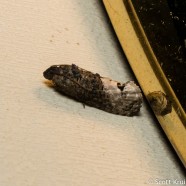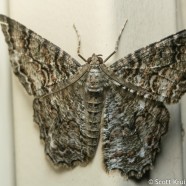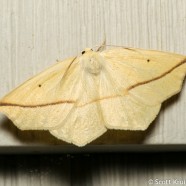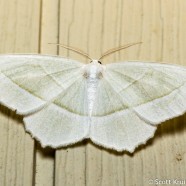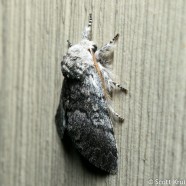Locust Twig Borer
Here we have what looks to be the Locust Twig Borer (Ecdytolopha insiticiana), named as its larvae feed on the Black Locust (Robinia pseudoacacia). They cause damage as they bore into the stems of the well known tree. Considering there are some Black Locust nearby this was another not too surprising sighting on a spring night.
Read MoreTulip Tree Beauty
Here we have the Tulip Tree Beauty (Epimecis hortaria) moth, with the host plant not far away. These are large moths which seems to fit because the Tulip Tree itself can be an enormous life form.
Read MoreYellow Slant-line
The Yellow Slant-line (Tetracis crocallata) moth falls into the very literally named category, also showing off a couple of fine looking spots. This moth could be hanging out at your porch tonight, and you cannot find them if you do not look. Give it a go!
Read MorePale Beauty
This is a Pale Beauty (Campaea perlata) moth, and I do not think much more needs to be said about that. What else could be flying around your yard right now in the darkness? Scott Kruitbosch Conservation & Outreach Coordinator
Read MoreClose-banded Yellowhorn
Here we have what looks to be a Close-banded Yellowhorn (Colocasia propinquilinea) moth, one of a few dozen species that I enjoyed seeing while mothing this weekend. I will be sharing moths all spring, summer, and fall, in part to honor one of young Roger Tory Peterson’s hobbies, and something that helped foster his passion for the natural world in our Wild America. This pastime is as easy as turning on an outside light at night and seeing what shows up. The very difficult part comes in identifying these (mostly) nocturnal creatures! I do have the superb Peterson Field Guide to Moths...
Read More



